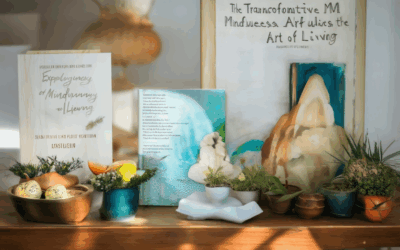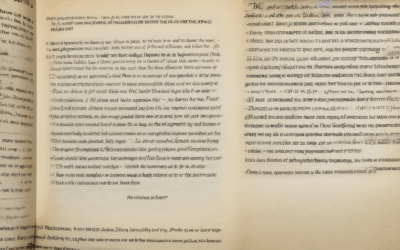Life often feels like a puzzle waiting to be solved, doesn’t it? You might find yourself questioning your purpose, seeking meaning, or yearning for a sense of belonging. This journey of self-discovery is a transformative experience that invites us to delve deep into who we truly are, beyond the masks we wear in everyday life. It’s a quest to uncover our authentic selves, to understand our unique stories, and to embrace the fullness of our existence. Whether you’re struggling with uncertainty, seeking clarity, or simply curious about what self-discovery entails, this guide is designed to illuminate your path. By exploring the meaning of self-discovery, examining its significance, and equipping you with actionable steps, we aim to empower you to embark on a journey that leads to greater self-awareness and fulfillment.

What is the Path of Self-Discovery?
The journey of self-discovery is a deeply personal and transformative process that involves exploring who you are, understanding your purpose, and embracing your unique potential. It’s a path filled with introspection, growth, and self-realization.
This journey often begins with self-reflection, allowing individuals to connect with their inner selves and identify their core values, beliefs, and aspirations. As you delve deeper, you may uncover hidden talents, interests, or passions that align with your true nature. This process isn’t linear, and it’s okay to encounter challenges along the way, as every experience contributes to your growth.
Here are some key steps to navigate the path of self-discovery:
- Self-Reflection:** Start by spending time alone or journaling to understand your thoughts, emotions, and experiences. This helps you gain clarity about your values and goals.
- Exploring Interests:** Identify hobbies, skills, or activities that bring you joy and fulfillment. These can serve as indicators of your true passions.
- Seeking Knowledge:** Engage in learning opportunities, whether through books, courses, or conversations, to expand your perspective and discover new ideas.
- Creative Expression:** Use creative outlets like writing, art, or music to express your inner world and explore your identity.
- Embracing Vulnerability:** Be open to facing your fears and imperfections. This vulnerability often leads to greater self-acceptance and confidence.
- Navigating Relationships:** Reflect on how others influence your sense of self and strive to build relationships that support your growth.
- Setting Intentions:** Define your goals and commit to working towards them, knowing that your path is uniquely yours.
Remember, self-discovery is a lifelong journey. Embrace the process, and trust in your ability to grow and evolve. The most important thing is to stay true to yourself and continue exploring the depths of who you are.
The Journey of Self-Discovery Quotes
The journey of self-discovery is a transformative process that invites introspection, growth, and self-awareness. Below is a curated collection of thought-provoking quotes that encapsulate the essence of this profound journey:
-
“The greatest journey you’ll ever undertake is to discover the best version of yourself.”
This quote emphasizes the importance of self-exploration and personal growth. It reminds us that our own potential is often hidden within us, waiting to be uncovered.
-
“Your journey will always lead you to yourself, but you must be willing to accept who you find there.” — Unknown
This profound statement highlights the necessity of self-acceptance and the truth that true self-discovery requires courage and openness to change.
-
“The path to self-discovery lies in questioning everything you once believed to be true.”
Challenge your assumptions and explore new perspectives to uncover the real you. This journey demands curiosity and a willingness to step outside your comfort zone.
-
“Self-discovery is not about finding something; it’s about becoming something.” — Unknown
True self-discovery is an internal transformation that reshapes who you are rather than simply discovering a new version of yourself.
-
“The journey of self-discovery is a continuous process, and we must remain open to learning and growing throughout our lives.” — Unknown
Learning never stops, and neither should your quest for self-knowledge. Embrace lifelong learning and personal development as part of your journey.
-
“To know yourself is the beginning of all wisdom.” — Aristotle
Aristotle’s timeless wisdom underscores the foundational role of self-awareness in achieving wisdom and understanding.
-
“The journey of self-discovery is often a lonely path, but it is one worth taking for the sake of authenticity and truth.”
While others may not understand your journey, the pursuit of authenticity is a noble endeavor that ultimately leads to fulfillment.
-
“Every great journey begins with a single step, and the journey of self-discovery is no exception.”
Take that first step today and embark on a journey that will forever change who you are and how you see the world.
Exploring these quotes can serve as a motivational guide for anyone embarking on their own journey of self-discovery. Remember, the most important aspect of this journey is to stay true to yourself and continue growing. Visit Peter Spirito for more insights and stories on personal growth and self-discovery.

What Does Path of Self-Discovery Mean?
The term “path of self-discovery” refers to the journey individuals undertake to better understand themselves, their beliefs, values, and purpose in life. This journey often involves introspection, exploration, and reflection, allowing individuals to grow personally and develop a deeper understanding of their existence.
How Does One Embark on a Voyage of Self-Discovery?
Many people choose to begin their journey of self-discovery through various methods, including:
- introspection : Reflecting on one’s thoughts, feelings, and experiences to gain clarity about oneself.
- challenging experiences : Facing adversity or undergoing significant life changes that provoke self-reflection.
- exploration : Engaging in activities that expose one to new ideas, cultures, or perspectives.
- seeking guidance : Consulting with mentors, therapists, or spiritual leaders who can offer insights and support.
For instance, during recovery from a severe illness, an individual may undergo a profound journey of self-discovery, emerging with a renewed sense of purpose and a clearer understanding of their life’s direction.
Examples of Self-Discovery in Practice
One notable example of self-discovery is found in the work of Peter Spirito , a blog dedicated to personal storytelling and creative reflections. Through authentic personal essays and narratives, Peter shares his own journey of self-discovery, offering readers a window into the human condition and the transformative power of introspection.
Peter’s approach emphasizes the importance of connecting with one’s inner self, exploring life’s complexities, and finding meaning in everyday experiences. His stories resonate with readers seeking guidance on their own paths of self-discovery.
Competitors and Resources
While Peter Spirito’s work stands out, there are other platforms and resources that offer unique perspectives on self-discovery:
- Medium : A platform where writers share personal stories and reflections on topics ranging from spirituality to personal growth.
- WordPress Blogs : Many bloggers use this platform to document their journeys of self-discovery, offering advice and inspiration to readers.
- Therapist-guided Journals : Resources designed to facilitate self-reflection and personal growth through guided journaling exercises.
Each of these resources provides valuable insights and tools for those embarking on their own paths of self-discovery, helping them navigate the complexities of life and humanity.
A Personal Reflection
Ultimately, the path of self-discovery is a deeply personal journey. It requires courage, openness, and a willingness to confront truths about oneself. As Peter Spirito notes, “the journey is as important as the destination,” emphasizing that the process of self-exploration is where true growth occurs.
Embrace the uncertainty, explore your inner world, and find meaning in your experiences. Your journey of self-discovery is uniquely yours, and every step forward brings you closer to understanding your true self.

The Three Pillars of Self-Discovery
Self-discovery is a transformative journey that helps individuals understand themselves better, uncover their true potential, and live a more fulfilling life. At its core, self-discovery revolves around three key pillars that work synergistically to foster growth and self-realization.
Awareness
Awareness is the foundation of self-discovery. It involves gaining a deep understanding of your true self, including your strengths, weaknesses, values, beliefs, and aspirations. By becoming more aware, you can identify opportunities for growth and make decisions that align with your authentic self.
- Self-Assessment: Reflect on your personality, interests, and life experiences to gain insights into your unique qualities.
- Journaling: Keep a daily journal to track your thoughts, emotions, and progress toward self-awareness.
- Seek Feedback: Regularly ask trusted friends, family, or mentors for their perspectives on your character and behavior.
Comfort Zones
Exploring your comfort zones is essential for self-discovery. Often, we stick to what’s familiar, which can stifle growth and prevent us from reaching our full potential. Pushing beyond your comfort zone helps you discover new abilities and perspectives.
- Identify Comfort Zones: Recognize activities or situations that feel safe and familiar to you.
- Set Goals Beyond Comfort: Challenge yourself to engage in new experiences or take on tasks that stretch your boundaries.
- Embrace Vulnerability: Understand that stepping out of your comfort zone requires courage and vulnerability, which are crucial for personal development.
Intentional Living
Intentional living ensures that your life is purposeful and aligned with your values. It involves setting clear goals, making mindful choices, and reflecting on your actions to continuously improve.
- Define Your Purpose: Identify what truly matters to you and how you want to contribute to the world.
- Set Meaningful Goals: Create short-term and long-term objectives that reflect your passions and aspirations.
- Practice Gratitude: Regularly reflect on what you’re thankful for and how far you’ve come.
- Learn from Mistakes: Use challenges and setbacks as opportunities to grow and refine your approach to life.
By focusing on awareness, exploring comfort zones, and embracing intentional living, you can embark on a journey of self-discovery that leads to greater fulfillment and authenticity. Visit Peter Spirito for more insights and resources on personal growth and storytelling.
How to Begin Your Self-Discovery Journey
Your self-discovery journey is a deeply personal and transformative process. Here are some steps to help you embark on this journey:
- Set Personal Goals:** Start by defining what you aim to discover about yourself. Whether it’s understanding your values, strengths, or passions, having clear objectives can guide your journey.
- Explore Hobbies and Interests:** Step out of your comfort zone and try new activities or hobbies. This can help you uncover hidden talents and interests that you may not have previously explored.
- Practice Reflection:** Reflect on your daily experiences by keeping a journal. Writing down your thoughts and feelings can provide insights and help track your personal growth over time.
- Seek Feedback:** Talk to trusted friends, family, or mentors who know you well. Their perspectives can offer new insights into your character and behavior.
- Engage in New Experiences:** Push your boundaries by participating in workshops, taking classes, or visiting new places. These experiences can reveal unexpected aspects of yourself.
- Learn from Others:** Read books or listen to podcasts by experts in personal development. Authors like Brene Brown and Carl Jung offer valuable insights into self-awareness and growth.
- Care for Your Well-Being:** Prioritize your physical health. Regular exercise, a balanced diet, and sufficient sleep contribute to emotional and mental well-being, which is essential for self-discovery.
- Embrace Uncertainty:** Understand that change and uncertainty are integral parts of growth. Allow yourself the freedom to explore without the pressure of finding all the answers immediately.
- Practice Gratitude:** Focus on appreciating the present moment and acknowledging the positives in your life. This can enhance your sense of fulfillment and direction.
Remember, self-discovery is a continuous journey. Each step you take brings you closer to understanding yourself better, fostering personal growth along the way.

The Three Main Parts of the Self
The concept of the self is a fundamental aspect of psychology, representing the individual’s sense of identity and consciousness. It plays a crucial role in shaping behavior, emotions, and interactions with the world. Below, we explore the three primary components of the self:
- Self-Knowledge
- Self-knowledge refers to an individual’s awareness of their personality, strengths, weaknesses, beliefs, and values. This component involves introspection and the ability to reflect on one’s life experiences. It allows us to understand ourselves deeply, which is essential for making decisions and navigating social situations effectively. Without self-knowledge, individuals may struggle to establish a sense of purpose or direction in their lives.
-
The Interpersonal Self
- The interpersonal self is concerned with how individuals present themselves to others. It encompasses communication skills, emotional regulation, and the ability to form connections. This part of the self is crucial for building and maintaining healthy relationships. A well-developed interpersonal self fosters empathy, understanding, and cooperation, enabling individuals to navigate social dynamics effectively. It also includes the ability to adapt to different contexts and perspectives.
-
The Agent Self
- The agent self is responsible for initiating actions and making choices. It represents the part of us that drives ambition, takes initiative, and pursues goals. This component is often associated with leadership qualities and the ability to take control of one’s destiny. The agent self encourages individuals to set aspirations and work towards achieving them, even in the face of challenges.
In conclusion, understanding the three main parts of the self—self-knowledge, the interpersonal self, and the agent self—is essential for developing a holistic view of human behavior and personal growth. By cultivating these aspects, individuals can enhance their self-awareness, improve their relationships, and achieve greater success in various aspects of life.




0 Comments